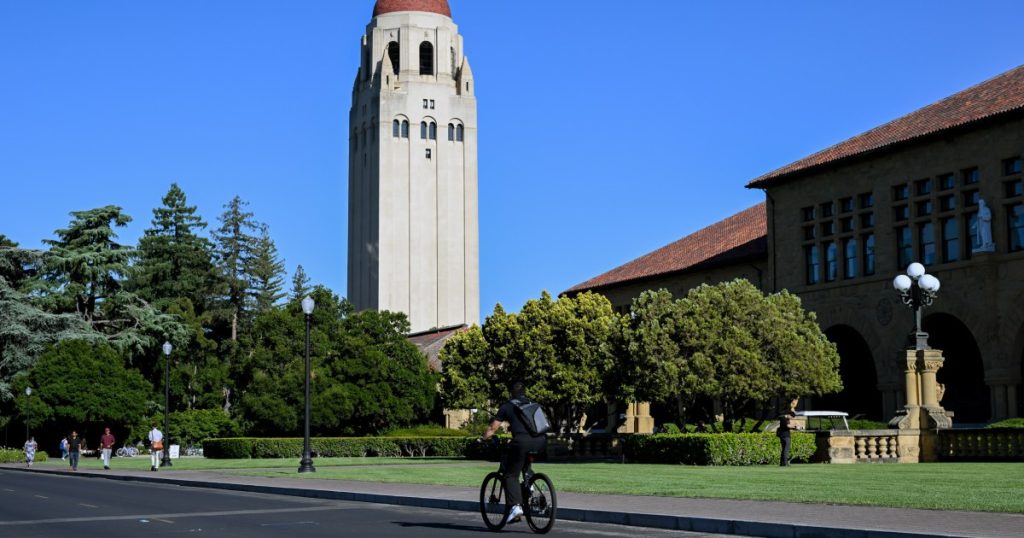Students protested at Stanford University during commencement, leaving their seats in protest during a speech by President Richard Saller. Videos showed students exiting the stadium in black robes and Cardinal-red trim, cheered on by their peers in the stands. The group Stanford Against Apartheid in Palestine organized an “alternative graduation” to support students who were prohibited from attending the official ceremony after being arrested at previous protests. More than a dozen protesters were arrested on June 5 after briefly taking over the president’s office, resulting in some being suspended from school.
The event just off-campus in Menlo Park aimed to honor and celebrate their arrested comrades who would not be able to participate in the official commencement. The group’s Instagram post called for supporting those students who were fighting against genocide. The organization’s actions were part of the spring wave of pro-Palestinian protests on American college campuses, demonstrating the students’ convictions and determination to stand up for their beliefs. Despite facing consequences such as arrests and suspensions, the protesters remained committed to advocating for their cause.
Stanford Against Apartheid in Palestine organized the alternative graduation as a way to bring attention to the ongoing conflict in Palestine and to show solidarity with their fellow students who had been arrested for their activism. The group aimed to create a space where these students could be recognized and honored for their efforts, even though they were unable to participate in the official commencement ceremonies. By holding this event just off-campus, the organization sought to emphasize the importance of speaking out against injustices and standing up for what they believed in.
The actions of the Stanford students reflected a larger trend of pro-Palestinian protests on college campuses across the United States. The demonstrations at Stanford were part of a wave of activism in support of Palestine, with students using their voices and actions to draw attention to the ongoing crisis in the region. By participating in protests and organizing alternative events like the one in Menlo Park, the students showed their commitment to advocating for justice and human rights in Palestine, even in the face of consequences such as arrests and suspensions.
The events at Stanford University highlighted the complex and contentious nature of discussions surrounding the Israel-Palestine conflict. The protests and activism on campus underscored the deep divisions and strong emotions that this issue evokes, with students expressing their solidarity with the Palestinian cause and their opposition to Israeli policies. By staging protests and organizing alternative ceremonies, the students at Stanford sought to raise awareness and provoke discussion about the conflict, emphasizing the need for empathy, listening, and learning in addressing such complex and sensitive issues.
Overall, the actions of the Stanford students during commencement were a powerful example of activism and solidarity in support of the Palestinian cause. By making a statement and standing up for their beliefs, the protesters demonstrated their commitment to social justice and human rights, even at the risk of facing consequences. The events at Stanford University were part of a larger movement of pro-Palestinian activism on college campuses, reflecting a growing awareness and engagement with the Israel-Palestine conflict among students in the United States.


